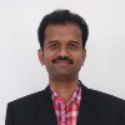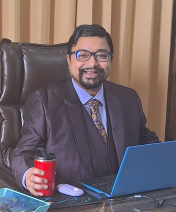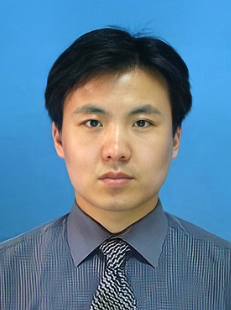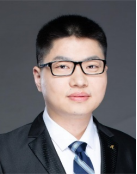
SPEAKERS |
Prof. Kolla Bhanu Prakash Koneru Lakshmaiah Education Foundation, India | Profile: Dr. Kolla Bhanu Prakash is working as Professor, Associate Dean[R&D] and Research Group Head for A.I & Data Science Research group at KLEF. He is Adjunct Professor for Taylors University, Malaysia. He published 150+ research papers in International, National journals and Conferences. He published Scopus and SCI publications of 95 with H-Index of 17 and total citations are 1178. He is reviewer for several international journals including IEEE, Elsevier, Springer, Wiley and Taylor and Francis and served as reviewer, keynote speaker and TPC member for several International conferences. His research interests include deep learning, data science and quantum computing. He received Best Researcher Award 4 times. He authored 2 books and edited 12 books with International reputed publishers like IEEE, Elsevier, Springer, River, CRC, Degryuter and Wiley. He also published 16 patents, 2 patent grants and 1 Copyright. He is guiding 3 Ph.D scholars. He awarded 3 Ph.Ds. Dr.K.Bhanu Prakash is IEEE Senior Member, Fellow-ISRD, Treasurer - ACM Amaravathi Chapter, India, LMISTE, MIAENG, SMIRED. He is Series Editor – “Next Generation Computing & Communication Engineering” – Wiley publishers. He is series editor - “Industry 5.0: Artificial Intelligence, Cyber-Physical Systems, Mechatronics and Smart Grids” – CRC publishers. He is NAAC Accessor. He is listed in Top 2% cited researchers in the world by Stanford University and Elsevier for the year 2021. He received grant of 27lakhs worth from Meity for establishing Quantum Computing Research lab [QCAL] at KLEF and grant from DST SERB worth 3lakhs for organizing workshop and conference in Quantum Computing. He delivered many Keynote speeches and expert talks world wide in Quantum computing, Machine learning and Deep learning. Speech Title: Harnessing the Power of Quantum Computing: Revolutionizing Optimization Studies Abstract: Quantum computing has emerged as a transformative technology with the potential to revolutionize various fields, including optimization studies. This keynote address delves into the realm of quantum computing algorithms tailored specifically for optimization tasks. Traditional optimization methods face limitations when dealing with complex, large-scale problems, often getting trapped in local optima or requiring exponential time to find solutions. Quantum computing offers a paradigm shift by leveraging the principles of superposition and entanglement to explore multiple solution paths simultaneously, leading to unprecedented computational power. In this address, we will explore the foundational concepts of quantum computing and how they enable the development of innovative algorithms for optimization. We will discuss prominent quantum optimization algorithms such as Quantum Annealing, Quantum Approximate Optimization Algorithm (QAOA), and Variational Quantum Eigensolver (VQE), elucidating their underlying principles and advantages over classical counterparts. Furthermore, the address will highlight real-world applications of quantum optimization algorithms across various domains, including logistics, finance, drug discovery, and machine learning. We will showcase success stories where quantum algorithms have tackled complex optimization problems efficiently, offering solutions that were previously unattainable or impractical with classical methods. Moreover, we will address the current challenges and limitations of quantum optimization algorithms, including noise and error mitigation, scalability, and hardware constraints. By understanding these challenges, we can pave the way for future advancements in quantum computing and optimization studies. |
Dr. Aniruddha Bhattacharjya BCBRBAB INTERCONTINENTAL TRADING SOLUTIONS PRIVATE LIMITED, India | Profile: Aniruddha Bhattacharjya is a PhD Alumni of Tsinghua University. He was a PhD scholar (Chinese Government Scholarship (CGS) holder) in Beijing National Research Center for Information Science and Technology, Department of Electronic Engineering, Tsinghua University, Beijing, China under supervision of Prof. Xing Li (Present mentor) [ Late Prof. Wang Jing was his mentor]. This PhD work was supported by National Basic Research Program of China (2012CB316006), and National S&T Major Project (2015ZX03002010-002) and National Natural Science Foundation of China (No. 61631013). He got full travel and conference funding from Tsinghua University's School of Information Science and Technology (SIST) and the Key Laboratory of Universal Wireless Communications (Beijing University of Posts and Telecommunications), Ministry of Education, P.R.China (No.KFKT- 2014101) and National Basic Research Program of China (2012CB316000) to present his paper in Cambridge University, UK. He got full funding for his project from the Key Laboratory of Universal Wireless Communications (Beijing University of Posts and Telecommunications), Ministry of Education, P.R.China (No.KFKT- 2014101) also. Department URLhttps://www.ee.tsinghua.edu.cn/info/1039/1186.htm His research interests are Cryptography, Information security, Applications of cryptography and IoT and CPS securities etc. He got best paper award in ACM ICC 2016, in Cambridge University, U.K. He has published 48 above International conferences and journal papers and book chapters. He has 16 years above teaching and research experiences. He has a Chinese Innovation patent granted as on date with Tsinghua University's affiliation and as per the protocol of the university. He is Senior member of IEEE. He is Senior member of ACM. He is the Founder Chairman and Executive Director (DIN 10414713) of BCBRBAB INTERCONTINENTAL TRADING SOLUTIONS PRIVATE LIMITED. Speech Title: Blockchain based tracing system for university assets Abstract:Tracing and tracking of the university assets help in terms of manufacturing and providing services to the users. The most of the current systems which are suggested by Food and Drug Administration (FDA) are loT and Hardware-Assisted Tracing data which are being stored as per requirements. The time and efforts on duplicating record keeping and third-party validations are total wasting of time and effort towards verification process. Many fraudulent activities and cyber-attacks can attack these Record-keeping systems, whereas Blockchain is unique for delivering that information securely and in a distributed Peer to Peer (P2P) fashion. We have proposed a Blockchain based traceability of the university assets like Computer Peripherals in Universities scenarios. We all know that the Blockchain is a shared, immutable ledger that facilitates the process of recording transactions and tracking assets in a business network. Smart contract is a unique feature for maintaining this kind of peripheral data. In addition to providing quality information, the proposed traceability system enables transparency, safety, and security. The security analysis also proven it better by principal of Blockchain. |
Distinguished Prof. Bo Dong Shenzhen Technology University, China | Profile: Bo Dong, Male, a distinguished professor at Shenzhen Technology University, a member of the First Action Hundred Talents Program B of the Chinese Academy of Sciences, the Peacock Program B of Shenzhen City, an expert in the evaluation of the National Science and Technology Progress Award, and a technical expert in the National Key R&D Program. Received a Ph.D. in Optics from Nankai University and the second Ph.D. in Electronic and Computer Engineering from the National University of Singapore. Previously served as a postdoctoral fellow at Laurier University in Canada and a scientist at the A * STAR Institute for InfoComm Research in Singapore. Led and participated multiple cooperation projects with Canadian NRSERC, Singapore NRF, China 863, National Natural Science Foundation of China, Guangdong Province, Chinese Academy of Sciences, as well as European Airbus, Singapore ST, Singapore SMRT, and other enterprises. Achieved a series of innovative results in new photonic integrated devices and applications, as well as optoelectronic detection. Published over 100 papers in internationally renowned optoelectronic journals, applied for 21 patents, and granted 10 patents. One project achievements won the 2013 ASEAN Outstanding Engineering Achievement Award and the Singapore Outstanding Engineering Achievement Award. Invited to give invitation speeches at over 10 international conferences, serving as chairpersons and technical committee members for over 10 international conference branches. Previously served as the Topical Editor for Applied Optics, a renowned optoelectronic journal under Optica, and as an editorial board member for Structural Monitoring and Maintenance, a journal under KAIST. Speech Title: Research on tactile sensors for robotic hands Abstract: Flexible tactile sensors are currently a global research hotspot, especially their important application value in the fields of robotics and artificial intelligence, which has attracted high attention from countries around the world. The core key technologies of flexible sensor technology mainly include three aspects: the design and manufacturing of flexible sensors, the embedded process of sensors, and the demodulation and processing of sensing signals. Based on the recent research achievements of our research group, this report will focus on introducing the flexible fiber optic sensors and flexible RF sensors developed by our research group, as well as their applications in the industrial field. It will summarize and look forward to the challenges and key technologies faced by future robot skins. |
Prof. Wennian Yu Chongqing University, China | Profile: Wennian Yu, male, holds a Ph.D. degree from Queen's University in Canada. He is currently a research fellow and doctoral supervisor at the College of Mechanical and Vehicle Engineering, Chongqing University, under the "Hundred Talents Program." His research mainly focuses on gear system dynamics, signal processing and monitoring of mechanical system states, degradation modeling of system states, and remaining life prediction. He has published over 70 SCI-indexed papers (more than 40 as first author/corresponding author) in renowned journals and conferences such as "Mechanical Systems and Signal Processing," "Applied Mathematical Modelling," and "Knowledge-Based Systems." His h-index is 19, and he has three highly cited papers according to ESI. He has received the Best Paper Award at three international academic conferences and holds four granted invention patents and six registered software copyrights. He has led or participated in over ten national and provincial projects, including the National Key R&D Program, the National Natural Science Foundation, and the National XX8 Engineering Project. He was selected as one of the top 2% scientists worldwide by Stanford in 2022. He serves as a regular reviewer for more than 50 international journals and has been recognized as an excellent reviewer by journals such as "Mechanism and Machine Theory" and the Institute of Physics (IOP) in the UK. He is a guest editor for the journal "Machines," an editorial board member of "SN AppliedScience," and a young editorial board member of "Mechanical Transmission." Speech Title: Research on dynamic characteristics simulation and in-situ test of multi-stage multi-gear planetary transmission mechanism Abstract:Multi-stage multi-gear planetary transmission mechanisms are widely used in the automatic transmission of high-power vehicle drivetrains. They achieve gear switching by the engagement and disengagement of the friction plates and steel plates of the clutch via the control mechanism. However, when the clutch is in a disengaged state, the friction plates are hanging on the rotating parts (i.e. the inner hub) of the planetary gear system, leading to high-frequency nonlinear random impacts with the inner hub teeth. This significantly affects both the lifespan of the friction plates and the stability of the system's operation. This report mainly introduces the research progress in the dynamic modeling of multi-stage multi-gear planetary transmission mechanisms and the in-situ vibration response testing under high-frequency nonlinear impacts on the floating supported friction plates. |




